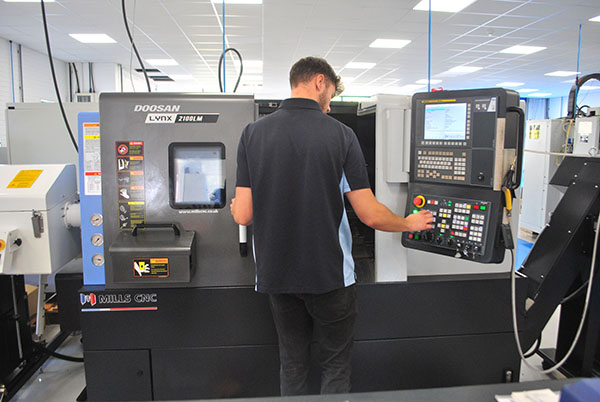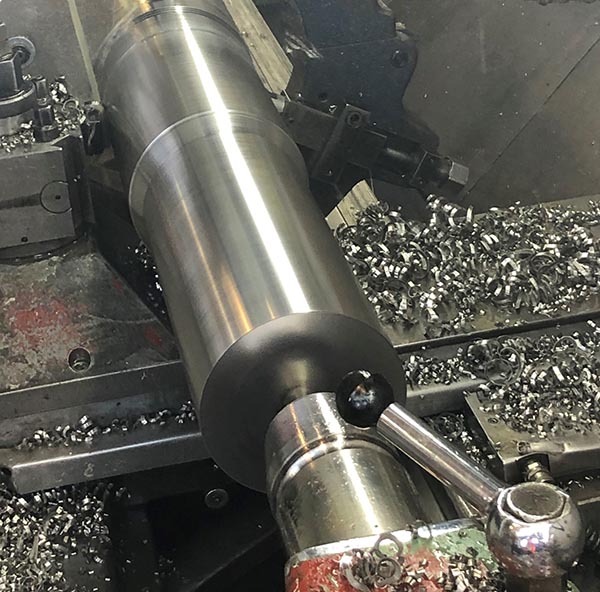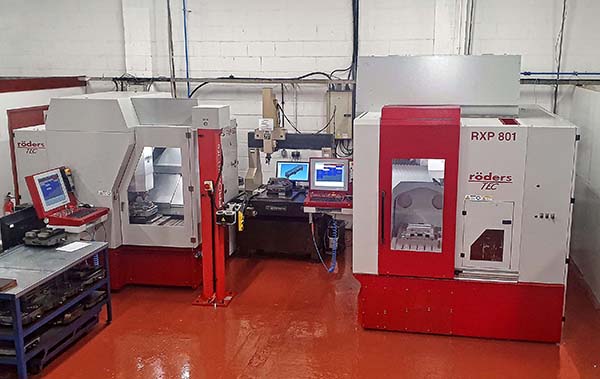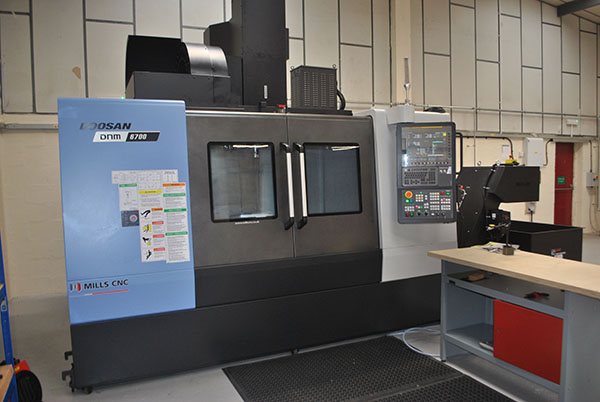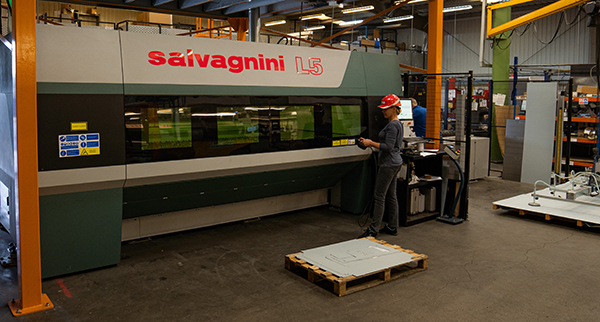Mills CNC, the exclusive distributor of Doosan machine tools in the UK and Ireland, has supplied Quick Machining Solutions, a precision subcontract specialist based on the outskirts of the New Forest, with a new vertical machining centre. The machine, a Doosan DNM 4500 three-axis machining centre, was installed at Quick Machining Solutions’ refurbished 7000 sq ft facility in September 2020.

Investing in a new machine tool during the pandemic, at a time when many manufacturers were “battening down the hatches” has helped Quick Machining Solutions meet growing demand for its machining capacity and capabilities.
Explains Wayne Harris, owner and managing director: “A number of component manufacturers closed down their operations and/or furloughed a significant number of staff in response to the pandemic. We felt that even in these uncertain times, we had an obligation to remain open while ensuring we did everything to keep our staff safe. We also used any spare time for training, maintenance and other improvements within the business.
“As a consequence of keeping our doors open we were able to pick up new work from a number of customers who were having difficulty sourcing their machined parts in the necessary timescale,” he continues. “This increase in demand, in addition to continually improving our machining capabilities, was the main catalyst behind the DNM 4500 investment.”

To ensure that the new machining centre would meet its immediate and future production requirements, the company drew up a checklist and investigated the market.
“We needed a high-performance three-axis machine with a compact footprint and a good-sized working envelope to handle a wide range of different-sized parts,” says Harris. “Also, we required a machine with a Heidenhain 640 control to integrate with our existing database of machines and programs.”
He adds: “We’d looked at purchasing a Doosan DNM 4500 at the start of the year but had postponed the decision, temporarily as it transpired. However, the increase in demand and the need for swift delivery, combined with a great purchase price, meant that the investment was given the go-ahead.”
Since being installed, the DNM 4500 has been used to machine a range of components for customers operating in the motorsport, film, leisure and industrial sensor sectors, to name but a few. These parts, machined in small-to-medium batch sizes and from materials that include aluminium, stainless steels, titanium and engineering plastics, often exhibit tight tolerances (down to a few microns in some instances) and surface finishes of Ra 0.1 µm.

The DNM 4500 machine supplied to Quick Machining Solutions is equipped with a direct-drive 12,000 rpm spindle, a 1000 x 450 mm work table, a 30-position ATC and a Heidenhain TNC 640 control. Further features include roller LM guideways and thermal error compensation to ensure high accuracies and repeatability over long machining runs.
Says Harris: “The DNM 4500 is versatile and a great all-round performer. We ordered the machine in September and in the same month it was delivered, installed and cutting metal.”
Founded in 2010, Quick Machining Solutions has achieved significant growth and success over the past 10 years. The company today employs eight members of staff, has substantially increased its turnover and, to win new business and secure its position within customer supply chains, has achieved ISO9001 accreditation. Its commitment to continuous improvement is further reflected in strategic and prudent investment in machine tools and ancillary technologies, as evidenced by its first Doosan machine acquisition around two years ago.
In November 2018 Quick Machining Solutions invested in a Doosan Lynx 2100LMA multi-axis turning centre with an integrated servo-driven bar feeder.
“To maintain our competitive edge we made the strategic decision to invest in a flexible, high-performance multi-tasking turning centre,” says Harris. “We were looking for a lathe that was fast, powerful and accurate, and we were specifically keen on acquiring a machine that was equipped with driven tooling to help us reduce set-up and part cycle times. A bar feeder was also required to help us improve productivity and facilitate ‘lights-out’ and unattended operations.”

Before taking any purchase decision, Quick Machining Solutions did its homework and researched the market. The results revealed that Doosan lathes were popular among component manufacturers and that, for small component production, the Lynx range came highly recommended.
On the basis of its findings, which also included visiting an existing Mills customer and Lynx lathe user, Quick Machining Solutions placed its order for a Lynx 2100LMA.
Says Harris: “The Lynx lathe is a real workhorse and, since its installation, hasn’t missed a beat. The performance and reliability of the Lynx lathe, and the ease of doing business with Mills, were major factors in us deciding to invest in the DNM 4500.”
Investing in new technology as well as its people, plant and manufacturing processes and systems, is definitely the “direction of travel” for the company moving forward. Other recent and planned investments to enhance its performance include: the recent purchase/integration of an MRP system to help improve productivity and operational efficiencies; investment in a new CMM to boost inspection capabilities; the roll out of a plan to generate solar energy; and the continuation of the firm’s in-house apprenticeship programme.
“We’re always looking to improve and innovate,” concludes Harris. “We’ve built a solid reputation in the market based on the quality of our machined components, the fast turnaround times we can achieve for customers and our competitive prices. In a relatively short space of time we’ve become a ‘go-to’ precision component manufacturer for customers operating in number of industries. Our investments in Doosan machine-tool technologies have been more than instrumental in helping us get to where we are.”
For further information
www.millscnc.co.uk






